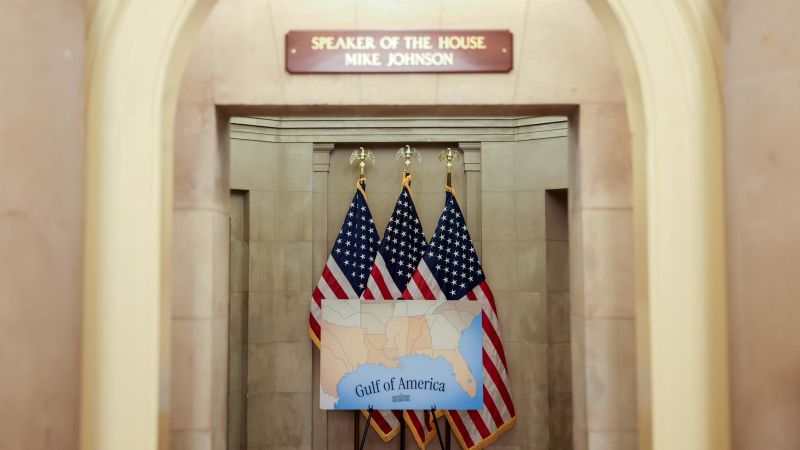Republican Revolt: Trump's 'Gulf of America' Plan Hits Congressional Roadblock

House Speaker Mike Johnson is facing unexpected pushback from within his own party over a controversial bill aimed at officially renaming the Gulf of Mexico. The proposed legislation, which stems from former President Donald Trump's earlier initiative, has sparked internal Republican debate and potential division.
Sources close to the discussions reveal that some GOP members are questioning the necessity and timing of such a renaming effort, creating tension within the Republican ranks. While the specifics of the proposed name change remain unclear, the bill has already generated significant discussion among House Republicans.
Johnson, known for his strategic political maneuvering, is now tasked with navigating the complex internal dynamics of his party to gain support for the legislation. The bill's fate hangs in the balance as Republican lawmakers continue to deliberate its merits and potential implications.
As the debate unfolds, political observers are watching closely to see how Johnson will address the growing resistance and whether the proposed Gulf of Mexico renaming will ultimately gain the necessary traction to move forward.
